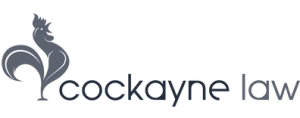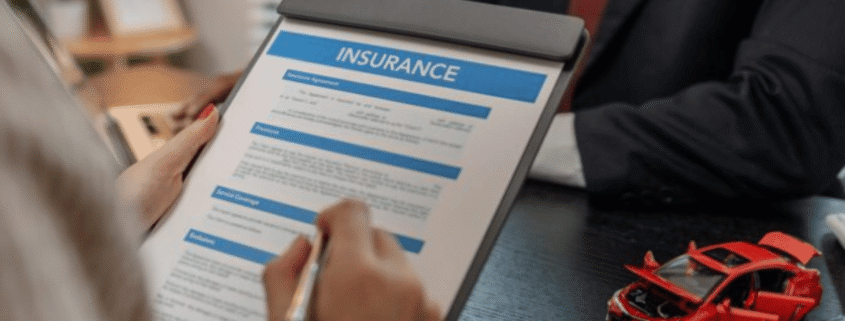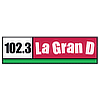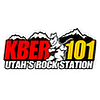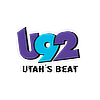Insurance for Minor Accidents in Utah: How to Handle Medical Bills, Repairs, and Claims
For small Utah crashes, use personal injury protection, MedPay, or health insurance to cover immediate bills. Report the accident if there is injury or roughly $2,500 in damage. Keep medical records and call a personal injury lawyer if bills exceed benefits.
Small crashes happen. A fender-bender can look like nothing, then bills arrive and you feel stuck. This guide explains how Utah insurance handles minor accidents, what to do right after a crash, and when it makes sense to call a lawyer. I keep the language simple so you can act quickly and avoid mistakes that cost money later.
You will learn which coverages usually pay first, how to get PIP or MedPay paid, and what paperwork to save. I will also explain when to report the crash to police or the state. If your medical bills go past the quick benefits, I cover options like underinsured motorist coverage, small claims, and a review by a local lawyer. Read the short steps first, then dive into the parts you need. This piece is for anyone in Utah who wants clear next steps after a minor accident.
Key Points You Should Know
- Report any injury or big damage right away
- Seek medical care even for small pains
- PIP is required and pays first for injuries
- Keep every bill, receipt, and medical note
- Take clear photos of cars and the scene
- Ask for witness names and contact details
- Check if MedPay or health insurance applies
- Consider small claims for limited medical bills
- Call a lawyer if benefits do not cover bills
When to report a minor crash in Utah?
If someone is hurt, call 911 and let officers write a report. If there is obvious injury or the visible property damage looks like it will be $2,500 or more, Utah law allows the state to require a written crash report. In practice, police often file a report at the scene. If officers do not come, the Department of Public Safety may ask drivers to file a report within ten days. That report creates an official record that helps when you later make medical or repair claims.
It helps your case later if you take these simple steps, even when the damage appears small. Names, phone numbers, insurance information, and license plate numbers should be exchanged. Get several shots of the vehicle damage from different angles, as well as some wide shots that include street signs or landmarks.
Upon leaving, the make, color, and license plate of the vehicle should be noted. You should contact the police and let them know you may have been involved in a hit-and-run. It is advisable to keep photos and receipts for a tiny dent if you decide not to involve insurance. You may find a hidden injury or more damage later. Filing early makes things easier if bills arrive weeks after the crash.
How PIP and MedPay help with medical bills in Utah?
Most Utah auto policies include personal injury protection. PIP pays for immediate medical care after a crash, no matter who caused it, up to the policy limits. The state requires a minimum PIP amount on auto policies, which gives you a quick way to get bills paid while treatment continues. Many people also add MedPay, which helps with co-pays and small out-of-pocket costs. Keep in mind that PIP usually pays before your health plan.+
How to make PIP work for you: when you see a doctor, say the injury came from the crash. Ask the clinic to note the crash in the record. Send those records and bills to your insurer right away. If the clinic bills you first, forward the bills to the PIP contact. Insurers need reasonable proof that care is related to the accident.
If PIP does not fully cover ongoing care, you may later pursue the at-fault driver’s liability insurance for the extra medical costs. If an insurer delays or denies PIP, keep written records of calls and create a paper trail. That makes appeals faster. A short call to a local personal injury lawyer can help when the insurer refuses to pay necessary care. Use your receipts and medical notes when you speak to the insurer or an attorney.
How to fix car damage: When to pay out-of-pocket vs. filing a claim
After a small collision, decide whether to use insurance or pay for repairs yourself. If repair cost is less than your deductible, paying out of pocket usually avoids a claim that could affect premiums. For an accurate estimate, get at least two quotes from some reputable shops. Insurance companies usually pay collision claims if the damage exceeds the deductible.
If another driver caused the crash, you can file against their property damage liability. Watch the other driver’s limits. Utah raised minimum liability limits on January 1, 2025. It can affect how much their insurer will pay for property repairs or injury claims after a crash. In the event the at-fault driver does not have adequate coverage, your own collision or underinsured motorist coverage may help.
Protect your health and your claim after a minor accident
Your health matters more than a car. Even mild pain can get worse. See a medical professional the same day or within a couple of days. If you wait too long, an insurer may say the injury is not related to the crash. When you see a provider, clearly state that the injury came from the collision so it is reflected in your chart.
Document all crash-related items, such as appointment notes, imaging reports, receipts, and prescriptions. Take your doctor’s advice regarding therapy or tests. When you skip treatment, your claim may be weaker in the future. Also, document how the injury affects daily life, such as trouble lifting kids or missing work. Short diary notes or texts to yourself are helpful evidence.
Avoid admitting blame at the scene or online. Simple phrases such as “I think I am OK” may be fine, but avoid detailed fault statements. Give facts: names, plates, photos, and a short description of what happened. If the insurer calls, stick to the facts and say you will provide records. If you find bills you cannot pay, talk to the billing office and tell them the charges stem from a crash; many providers will wait while insurance is sorted. Organized records speed up claims and protect your health.
Will a small crash raise your car insurance rates?
Insurance companies look at fault, past claims, and driving history when they set rates. Filing a claim after a minor crash can affect your premium if the insurer classifies it as an at-fault accident. If you pay for a small repair yourself and do not file a claim, your insurer will not have that incident on file. Ask your agent how a claim is likely to affect renewals.
A few insurers will forgive your first small wreck. If you have forgiveness, a single minor claim may not change your rate. Check your policy or ask the agent. Also remember that serious claims or multiple claims over a short time are more likely to trigger a jump in premium than a single minor claim. Even if your rate rises, shopping different companies at renewal often finds lower offers or discounts, such as bundling or safe driver credits.
If you are concerned, get a written estimate of the rate change from your carrier before filing. Sometimes paying the deductible and not filing for property-only damage makes sense. Unlike large liability payouts, PIP and MedPay cover medical bills and usually do not affect rates. Ask an insurer for specifics if your rate is being raised without clear cause.
When to call a lawyer and how they can help?
The need for a lawyer is not always necessary in minor crashes. Even so, it may be worth a quick call. If your bills exceed PIP, your insurer delays payments, or your fault is unclear, you should talk to a lawyer.
Medical records can be reviewed by an injury lawyer, gaps in coverage can be explained, and a small claim or settlement can be suggested based on the circumstances. When hiring help, find out if the firm works on contingency, so you only pay if they recover money.
Local firms know Utah rules and common insurer moves. An experienced team at Cockayne Law handles car accident cases. They offer free case reviews to explain next steps in easy language. Like other personal injury lawyers in Utah, they collect medical records, communicate with insurers, and negotiate to avoid court whenever possible.
Final thoughts
A small crash does not have to become a headache. Take care of your health first. Make sure the doctor links treatment to the crash, keep bills and photos, and report the crash if required. Let PIP or MedPay handle immediate medical costs, and save receipts that show what remains unpaid. If bills keep coming or an insurer drags its feet, a call to a personal injury attorney in Utah. Chris Cockayne can clear up options and deadlines.
When you need help, a quick review by a local lawyer can tell you whether to settle, file small claims, or take another route. If you want a free review of your situation, Cockayne Law can look over records and explain the further practical steps. Early paperwork and clear records keep options open and cut down stress.
FAQs
Will PIP pay my medical bills after a minor crash?
Yes. Utah requires PIP on auto policies and it covers immediate medical care up to policy limits. Tell your doctor the injury came from the crash and send bills to your insurer for payment.
Should I see a doctor after a fender-bender?
Yes. Some injuries show up later. A prompt medical exam links care to the crash and creates the record insurers need to pay bills or for future claims. Don’t lose any records.
What if the other driver has no insurance?
PIP helps with immediate bills. If you have uninsured motorist coverage, it may cover extra costs. If not, recovering money from an uninsured driver can be difficult unless they have assets.
Can health insurance pay before PIP?
PIP typically pays first for crash-related care in Utah. Tell both insurers about the accident so billing coordinates and you avoid missed payments or surprise balances.
Can I use a small claims court for medical bills?
Yes, for limited amounts. Utah small claims generally allow claims up to $20,000, depending on the court. Small claims are faster and cheaper but have strict limits.
